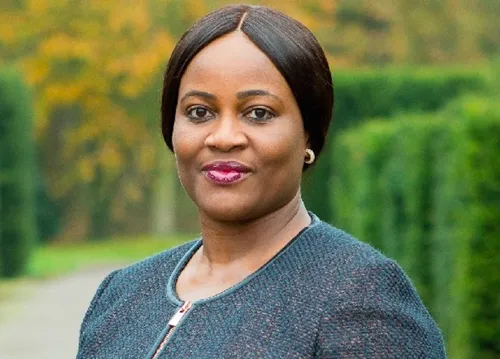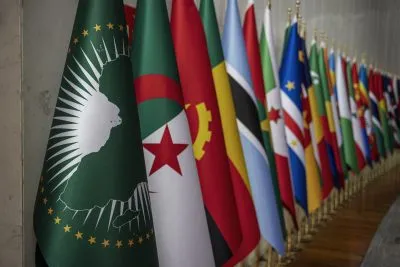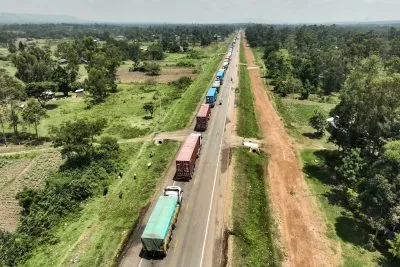Chinelo Anohu has an impressive track record. A lawyer by training, she transformed the pension fund industry in Nigeria as the head of Pencon – for many, as important a transformation as the banking consolidation and the telecoms revolution on the continent in terms of unlocking domestic resources. She was called a doer and a serial winner by her peers.
As the director of the Africa Investment Forum she has created a platform that is accelerating deal flow on the continent. With a context of war in Europe, post-Covid chaos and frightening macro-economic indicators, is there much we can be positive about?
During an event organised by Africa Soft Power on the sidelines of the UN General Assembly she explained to African Business why in the current crisis, originating transactions is more important than ever.
African Business: Earlier this year you attended the Milken Institute’s annual investment conference. It brings together asset managers managing trillions of dollars. What do the Americans and others think about investment opportunities in Africa and what the barriers that you have to overcome when speaking to this constituency?
Chinelo Anohu: We are constantly putting things on the table that weren’t there before and constantly refusing to take no for an answer when it comes to Africa.
And I suppose this is a continuation of a culture that goes back to my days at Pencon. There was a lot of talk on pension reform and many people were saying that it wasn’t possible. It took a few senior people and a very willing President Obasanjo to back us and we pushed through the pension reform and did it in such a way that it remains sustainable
That’s what we’re doing now with the Africa Investment Forum. Again, building a platform that is multi-transactional, multi-disciplinary and very deal-oriented. We are trying to get away from the endless talk about what needs to be done in Africa to actually doing stuff and we’re doing it one transaction at a time. We distil the talk into projects.
We are working with the creative industry, for example, and doing a lot of work and seeing how we can channel funds to where it is needed, not just where people think it is needed.
That brings me to your direct question about the perception of the Americans in business. You have to deal with people telling you what they think is good for you because you’re not able to speak for yourself.
They say, this is what you need because you have not articulated your own needs in a manner that you can present it so that it will be addressed. The continent also has not understood its part in solving its own problems, nobody will do it for you. You’re going to have to rise and do it yourself.
So through the AIF platform we’re helping people join us as partners and shifting the discussion to one of investments. And I see that this approach does resonate in the American market and US investors.
With the AIF, which is a flagship initiative of the African Development Bank along with seven other founding partners, we are preparing projects for bankability and helping projects progress through the different steps, the next one being raising capital and once that is done also working to unlock the bottlenecks that can cause some deals to not reach closure.
So we’re involved throughout the value chain, all year round, providing the tools and instruments and know-how to make a deal bankable and helping it see the light of day. Of course, each deal is different and our role will change depending on the needs.
Can you tell us more specifically about some of the obstacles that you’ve helped overcome to get deals over the line or that deal preparation to make them bankable and attractive?
One of the biggest challenges is project preparation. You can always find capital and it is available both domestically and globally.
On the domestic front, can I just say that the driver behind the pension reform we conducted was to ignite that domestic resource mobilisation. And across the continent, we haven’t even started to scratch the surface on that front. Just look at contributions as a percentage of GDP and it’s still small comparatively speaking. So there is capital.
The issue we have found are the project themselves, the way they’re structured and the way they are prepared. We have noticed that you can have some fantastic projects but they are structure is wrong and they don’t have the basic corporate governance structures that make them investible from an investor’s perspective.
I also think we need to be more ambitious. You see projects and they are too timid, too small. International investors and financiers want scale. So we also help see the bigger picture and help ensure that these projects are appealing and will meet the requirements and benchmarks that we know investors will request.
You sit at the intersection of public and private sector. Do you help reduce some of that perceived political risk that often puts off investors?
First let me say that risks do exist. It would be naive and totally idealistic for anyone to say that political risk doesn’t exist. But it exists everywhere. The point is that it’s not going to go away. What we need are the tools to manage it so that it doesn’t become a problem. What we do on the AIF side is to ensure that we unlock these bottlenecks and sometimes it’s a political bottleneck, sometimes it’s a policy bottleneck. Sometimes it’s a data or business intelligence bottleneck because you can’t invest if you don’t understand your terrain, if you don’t have reliable numbers.
We are uniquely placed to overcome all of these different items. We work with every government on the continent. So we can help smooth out issues around policy through discussions and sensitisation and through reforms. We also have proprietary data through the African Development Bank.
It is always incumbent on the project sponsors and the advisors to structure the deals in a manner that you accompany the interests of the country you operate in. That’s what differentiates success and frustration.
One should understand that when the presidents come to the AIF they don’t come to AIF as the president of such and such a country, they come to AIF as CEOs of their countries.
They sit in the room with investors, they sit in the room with project sponsors and they hear first-hand how their intentions, their concerns, how policies affect the investments. And investors also get a better understanding of policy. It helps with decision making and we have seen leaders go back to work on policy to help drive greater investments and get deals over the line. That is the unique proposition of the AIF.
I know that the Soft Power Project believes in the creatives and the sports. And I know that the sports and the creatives are important to you. It’s something that you want to promote and get the AIF to put money behind and support these industries. How do we scale up these two particular sectors?
The same principles that we discussed earlier still need to be applied to these sectors. Thinking about scale, structuring projects properly, creating awareness around the impact and upside.
Talent is not the issue on the continent. We have it in abundance. We are naturally blessed in sports and in the creatives.
But we want to look at it more than just an athlete or a singer. We are looking to creating the framework so that we monetise the IP. Others are currently making money from our talent.
Around sports you have the merchandising, you have the whole ecosystem, the infrastructure and for those watching these sports, the hotels, the shops, the licensing. This is why people are paying billions for sports franchises.
We are helping structure this, and helping channel investments towards this. The same applies to the creatives, and making sure that we are monetising our creations.
Capturing the value and creating an industry around sports and the creatives. What can we look forward to in terms of deals at this year’s AIF?
Before I talk about deals, I would like to talk about something that is paramount to me: women as investment champions. This is something I am most proud of, the launch of the Women as Investment Champions.
We are helping to channel monies to women-led and businesses with a gender lens. We have a dozen deals on our platform starting from $2m – a sheer butter business – to a multi-billion refinery business.
Their stories are amazing when you look at the obstacles they’ve had to overcome, the challenges and sheer tenacity and not just the will but also the mental acumen to pursue the deals to where they are now.
This is something we incredibly proud of and when we talk about women in business, we’re helping make it a reality. We’re helping create scale and impact.
This year, mining especially what are termed green minerals. We have many technology projects and also projects around logistics.
The Lagos to Abidjan corridor highway project has been well documented and it’s fully subscribed – the road, the rail connection. So, now we are working on the next step which is logistics, storage, warehousing along this corridor. That’s what the boardrooms will be focusing on during the AIF. Making transactions happen and getting real investor interest in critical projects that will help drive transformation and development.
The AIF is taking place on 2-4 November in Abidjan, Côte d’Ivoire. Viewers can stream the session via https://www.youtube.com/watch?v=swlzGIyOiZQ
Want to continue reading? Subscribe today.
You've read all your free articles for this month! Subscribe now to enjoy full access to our content.
Digital Monthly
£8.00 / month
Receive full unlimited access to our articles, opinions, podcasts and more.
Digital Yearly
£70.00 / year
Our best value offer - save £26 and gain access to all of our digital content for an entire year!
 Sign in with Google
Sign in with Google 



